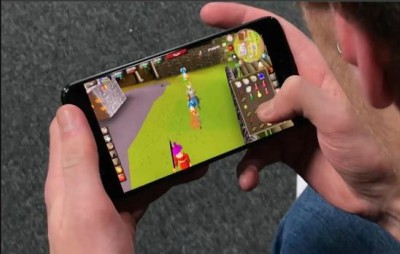Cheats are always popular with gamers; what they don’t like, however, is to be cheated. It’s a given that technology and innovation go hand in hand. For the gaming industry too, this is the standard — constantly reinvent yourself, or perish. Gaming companies, however, are often so eager to seek innovation that they make promises they cannot keep, and introduce modifications that restrict the freedom of consumption. This way, the average gamer is left feeling frustrated, enraged and downright cheated. Here, we take a look at some of the missteps that game developers and publishers have taken that have put them In garners’ bad books.
Stale sequels
A recurring problem with games today is the fact that once they become a franchise, they bring nothing new to the table. Most of the innovative ideas go out the window, and at the end of the day, you realize that the titles would have done better as stand-alones. However, publishers are so keen on capitalizing on a hot commodity that they start churning out unnecessary sequels that aren’t as novel as their predecessors. The result is a series of games in a particular genre that just don’t push the envelope; that are more or less rehashes of a pre‑existing formula. Usually, complaints stem from single-player campaigns from games such as Resident Evil 5, White Knight Chronicles 2 and, to some extent, even Call of Duty: Modern Warfare 3. Such games lack development in terms of the story, characters, atmosphere or new play mechanics, and resort to replicating the franchise’s previously successful outing. With all the time in development and the incredible hype generated for such games, one can’t help but wonder, just where did all that money go?
Missing extras
Most of the prime console manufacturers choose to attract customers by providing plenty of value- added content. This could be in the form of special deals with developers over downloadable content (DLC), additional playable characters, extra modes available for the game, or even an extra game altogether. At the Electronic Entertainment Expo (E3) 2011, there was plenty of excitement when EA Games announced that all copies of Battlefield 3 for the PlayStation 3 would contain Battlefield 1943 on disc. This obviously drove many people to pre-order and purchase the PS3 copies of Battlefield 3, but anyone hoping to get their hands on game number two was met with disappointment — the disc on sale did not have Battlefield 1943. It turned out that EA had silently changed its plans, and instead provided free access to its upcoming DLC map pack in lieu of the extra game. What followed was public outrage that accused EA of selling the product using deceptive advertising. Similarly, the recently released Saints Row: The Third also promised PlayStation 3 owners with an exclusive multiplayer mode, except that there was nothing of the sort on-disc. Many speculated that the multiplayer component found in the Xbox 360 and PC versions of the game was originally the promised PS3 content, and assumed that it had been extended for other consoles. The developers, however, addressed the issue by stating that those who would use the multiplayer mode for the PS3 version will have access to a free download of Saints Row 2 off the PlayStation Network. As for EA, they were ultimately faced with a class-action lawsuit by a communion of garners who demanded that the free game they had been promised be delivered, to which EA ultimately yielded. However, much to the satisfaction of the Ubisoft customers, the bonus game on the new Assassin’s Creed Revelations disc was there.
Digital rights, management woes
Speaking of which, Ubisoft has been at it again with its notorious stance on digital rights management (DAM) for many of its games. Starting with the launch of Assassin’s Creed II. Ubisoft imposed a special type of DAM that required garners to stay connected to the internet at all times if they wished to save their progress within the game. This caused much debate and fan outcry, because a hitch in connectivity meant the player would be left in limbo. Ubisoft addressed the issue by providing temporary local saves that were synced with its servers, but it wasn’t ready to let go just yet. After a brief lull in its policies, it again brought down the beleaguered DAM onto copies of Driver: San Francisco for the PC, and paved way for its coup de grace — slashing down games for the PC market altogether, starting with long- awaited titles Ghost Recon: Future Soldier and I Am Alive. This created a major rift between those faithful to the PC and the company, as its unyielding policies kept gamers from running their game of choice on the most powerful (albeit unsafe) system in the market. Some may say that
Ubisoft was right in protecting its content, but when you look at the DAM-free policies implemented for The Witcher 2 and Super Meat Boy, this action seems nothing but cruel.
Online passes
The last major bone of contention between game companies and garners is the trend of including passcodes within games to unlock specific in-game features. For a while now, plenty of games have implemented an online pass system, where access to its multiplayer segment was only provided through codes found in new copies of the game. This soon became heavy on the pocket for tight-on-budget garners, who bought used games for a reduced price. Now, they had to pay a premium to access all the features of the game that they had picked up, doubling the price of what a used game would actually cost. Mortal Kombat, Uncharted 3 and Modern Warfare 3 are some of the titles guilty of having their multiplayer suites locked out until the end-user doesn’t pony up for an online code. What’s incredibly surprising is that a game like Batman: Arkham City also utilizes passcodes to give players access to Catwoman’s single-player missions that are relevant to the story. Garners suspect that this would set a negative precedent for exclusively single-player games as well; and with Sony’s recent decision to incorporate online passes into all its first-party titles from now on, they may be right.
End credits
The industry may be making a lot of progress, but there are pitfalls that come along with such great advancements. The market has transformed over the last couple of years and will continue to change, but there are some things that go along as necessary evils and are ultimately ritualized at the expense of the freedom that the average gamer enjoys. As we inch closer to the next generation of gaming, now is the crucial time where decisions would effectively govern how we play games in the future.


